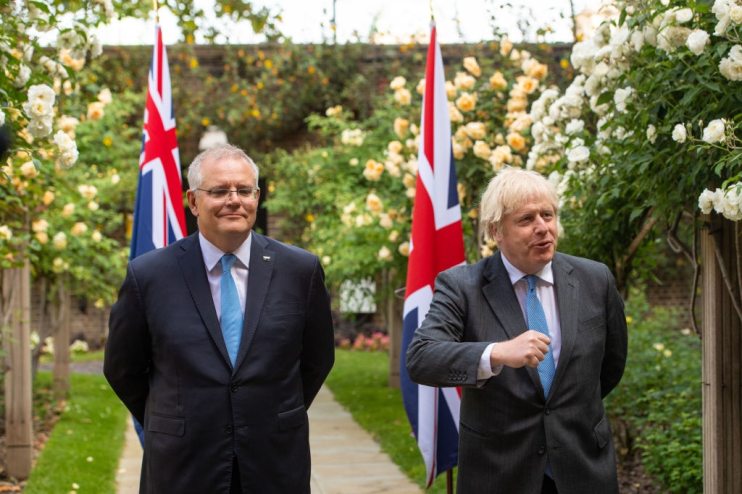Exports slump in July as UK explores non-EU markets

Total exports fell one per cent in July, down £300m, driven by a £900m drop in goods and services delivered to the EU.
Falling EU exports were in part offset by a healthy increase of £700m in export value to non-EU markets, up by five per cent compared to the previous month. Overall, however, the pingdemic and a shortage of heavy goods vehicle drivers as a result of Brexit and Covid-19 dragged on UK trade.
The British Chambers of Commerce responded to the figures calling them “concerning.”
“The most striking comparisons are with three years ago, before pandemic and Brexit factors took hold,” a spokesperson said. “This provides a less favourable comparison, with EU imports £3bn lower and exports to the EU £1.7bn lower in July 2021 than in July 2018.”
The decline in exports to the EU was driven predominantly by a drop off in medicinal and pharmaceutical products following an increase in June 2021, which could not be substituted by upping exports to non-EU countries.
Falling trade with the EU was also the entire cause behind a decline in imports with a £100m decline in the value of goods and services purchased while intake from non-EU countries remained flat. Despite the drop off in imports the UK widened its deficit by £1.5bn to £4.9bn in the three months to July 2021.
The value of total goods exported from the UK worldwide fell to £27.2b for the month, well below its average of £31.1bn in 2019. It indicates the UK missed out on a global trade rebound coming out of the worst of the pandemic.
In contrast, goods exports in many other OECD economies now comfortably exceed their 2019 level, so said Gabriella Dickens, senior UK economist at Pantheon Macroeconomics.
The news comes as the UK pursues trade opportunities outside Europe. Negotiations with Australia over a trade deal which was agreed in June remain ongoing as policy makers fine tune details.
Against the backdrop of fraught negotiations and declining EU trade, July’s figures show that trade is nonetheless stabilising after taking a hit during Covid and at the end of the Brexit transition period in January.